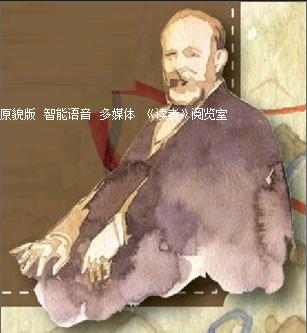Who Have Walked Across The Silk Road
Li+Wenxiao



Peace-making
marriage
princess
Her happiness related to
national happiness
Peace-making marriage is political marriage between neighboring countries, and is a peaceful diplomatic means. Dominated by Han nationality, if a good-neighborly relationship is kept between the Central Plains nation and the nomadic people in the Western Regions, the cultural and commercial exchanges on the Silk Road would naturally be more open.
There were more than 150 times of peace-making marriage between Han nationality and other nationalities from Han Dynasty to Qing Dynasty counted by scholars. During the period in which Zhang Qian lived, two princesses in Hahn Dynasty married into Wusun. Similarly, there were some princesses married into the Central Plains from other nationalities around the Central Plains.
European
Explorers
Cultural looters in
the name of exploration
Since the 17th century, as the European powers expanded their colony worldwide, a new career, explorer prevailed in Europe. In the 19th century, a boom of exploration in China's central and western regions in the name of geographical survey rose after invasion of China by European powers.
In 1868, Richthofen, a German, made a large-scale survey of geomorphology of China for the first time. He proposed that there was a "Silk Road" in the north of the ancient China and a lot of remarkable relics along the road. The finding had evolved into a loot of ancient Chinese relics in the next half century. Up to now, China's cultural relics are in the museums in London, Paris, Berlin, New Delhi ......
Trade
Caravans
Come to the ancient China to seek interest
Merchants had been on the Silk Road for a long time, known as Hu merchants at that time mainly coming from some ancient nations in ancient Arabia and Persia. Merchants on the Silk Road usually purchased silk, porcelain, gold and silver ware, tea, and brought cattle and horses, all kinds of jewelry, and specialty crops, etc. The imperial court usually treated Hu Merchants as guests paying tribute, there were some Hu merchants admiring the prosperity of the Central Plains, moving to the Central Plains, and merging into the Chinese nation. In the Sui and Tang dynasties, thousands of Hu merchants swarmed into Chang'an, Luoyang and other cities. The places where they inhabited were called "Fanfang", becoming busy business districts.
Envoy
Pathfinder shouldering national missions
Business of various nations on the periphery of the Silk Road was always a spontaneous behavior at the earliest; but the official opening began during the period in which Zhang Qian, the famous envoy in Han Dynasty lived. Afterwards, many envoys representing the governments going to and from the Western Regions and the Central Plains to communicate the two governments, learn about each other's life and cultures, two of the envoys were called "giants" opening the Silk Road, namely Zhang Qian in Western Han Dynasty and Ban Chao in Eastern Han Dynasty. At that time, as pathfinders, envoys to the Western Regions often faced a lot of difficulties and dangers. During wartime, envoys were often in the contradict whirlpool ranging from imprison to death due to political and military reasons. In addition, because of limited equipment under ancient conditions and sinister western geographical environment, the envoys often narrowly escaped on the long and arduous road of serving as an envoy abroad. During the reign of Emperor Wu in Western Han Dynasty, Zhang Qian was trapped in Hun territory when he went to Darouzhi. Even if things had changed, Zhang Qian still passed the will of Emperor Wu to Darouzhi, but it was ten years too late! Zhang Qian also visited many small nations in the Western Regions along the road and taken back a lot of products.
Soldiers
Fighting to seize the opportunity
for national survival
The Silk Road was not always thriving and vibrant. Naked plunder coexisted with trade. Nomadic people were born to be soldiers on horse, always invaded the Central Plains to the south to loot the products of farming civilization, such as salt, tea, iron, national war broke out occasionally. Especially during the Sixteen Kingdoms period, nomadic peoples concentrated to attack Han Dynasty, which can be deemed as the process of national amalgamation of nomadic people moving into the interland. To resist the invasion, the Han Chinese constructed the Great Wall, Yanmen Pass and other fortresses, and conscribed to garrison the frontiers throughout the year. War created well-known generals, such as Li Guang, Huo Qubing; but "conscription" became the eternal pain in the mind of people; "being banished to the frontier" was a political and legal punishment. "Frontier-style poetry" induced by war truly reflected life and psychological state of the soldiers at that time: the solders were urged to prepare for fighting when they were drinking wine, they said that even if they were drunk on the battlefield, please do not laugh at their craziness because few people could come back to the hometown." Wine and lute were specialties of the Western Regions, it was what a wonderful thing to enjoy them; while life on horse was so short that the solders could not withstand to be urged by military orders.

